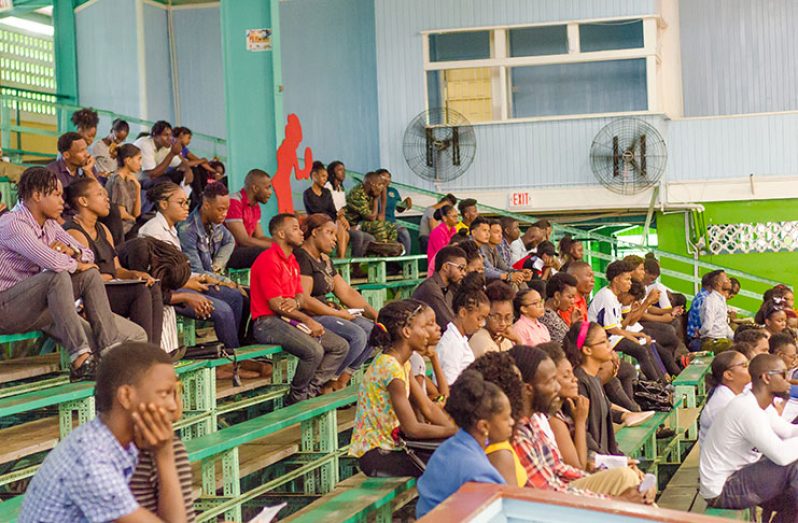REPRESENTATIVE of the Amerindian Peoples Association (APA), Sherwayne Crammer, said that there should be more focus on Technical, Vocational Education and Training (TVET) for indigenous youth to equip them with employable skills.
Speaking at a recent forum that focused on youth unemployment in Guyana, Crammer highlighted that the current educational curriculum is not necessarily very applicable to indigenous youth, and their way of life. As a result of this, he opined that young indigenous people are doubly disadvantaged when it comes to securing jobs.
“We must first recognise that indigenous youth are disadvantaged in accessing education and jobs,” Crammer told the gathering of young people.
“It is our belief that the formal education sector does not cater for indigenous youth. Even when we get opportunities to come to Georgetown, we face further difficulties (in terms of) stigma and discrimination,” he explained.
He further said that the education sector- with its heavy focus on “Maths and English”- contributes to the erosion of the indigenous way of life.
Employment in indigenous communities is largely limited to farming, fishing and mining with a very small percentage of persons working in the village administration. This, according to the APA representative, means that the education curriculum does not majorly translate to employable skills.
“We are asking for there to be more focus on TVET for indigenous communities, since a lot of our young people are very artistic and skillful craftsmen,” he said.
In 2017, Guyana signed a US$14M agreement with the Caribbean Development Bank (CDB) for a Skills Development and Employability Project aimed at enhancing TVET. This project was scheduled to begin on June 30, 2017 and conclude on December 31, 2021, and is geared at assisting the Government to enhance access to, and improve the quality and effectiveness of the TVET system.
Finance Minister Winston Jordan had said that improvement in this area would assist in reducing coastal/hinterland and ethnic income disparities. Crammer stressed, in this regard, “We should not be forced in a Maths and English based curriculum.”
Instead, according to him, indigenous youth should have ready opportunities to educate themselves in skills in sectors that they could find ready employment in their communities too.
“We also want to improve our skills in mechanics, engineering, carpentry and various innovative sectors… there is no need to limit us,” he said.



.jpg)








